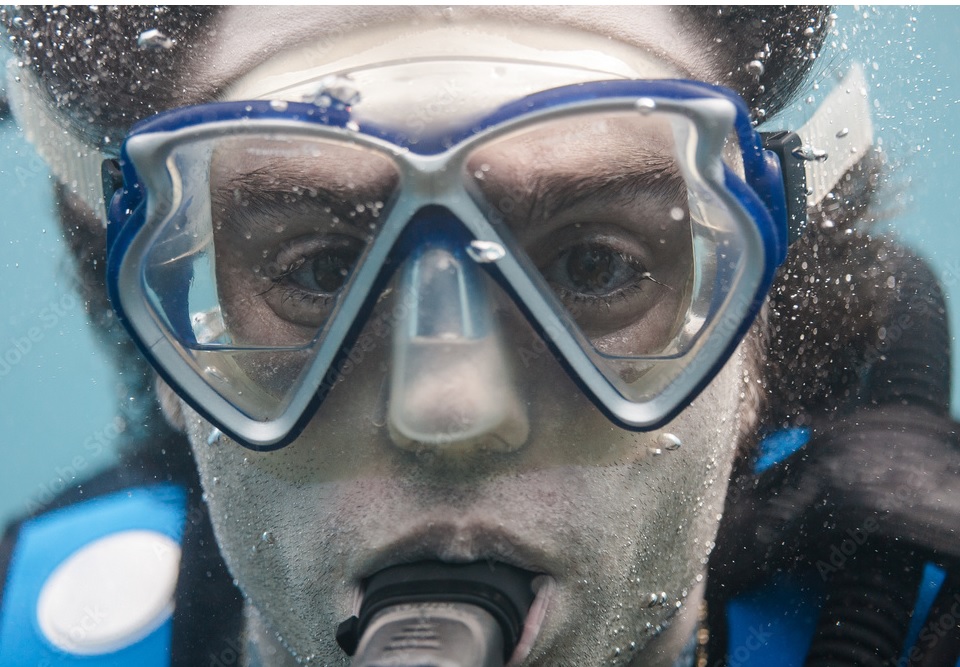Can diving affect oral health?
The relationship between diving and oral health has been gaining importance recently.
The high temperatures make summer the ideal time to practice water sports. In addition to surfing, water skiing, and canoeing, scuba diving is one of the most popular during these months. However, scuba diving is a complex sport that requires certain precautions to practice safely and without compromising health, especially oral health.
In this sense, to dive into this sport, regardless of the level or category, it is necessary to have a medical certificate. The importance of the certificate lies in the fact that, when diving, different parts of the body come into play, such as the respiratory system or the oral cavity.
The relationship between diving and oral health has been gaining importance in recent years, with an increase in oral pathologies directly related to the practice of this sport. The leading cause is the pressure difference, since the more a person dives, the more the pressure increases, which can cause acute pain in the teeth and jaw.
Because of this situation, we present a list detailing the most common oral and dental problems when diving:
- Barodontalgia consists of acute pain and is divers most common dental problem. Inside the tooth is the pulp chamber, where the nerve is housed. When there is a sudden change in atmospheric pressure, the nerve cannot adapt and balance the pressure to this change inside the chamber, producing intense pain. It can occur in mouths with inflamed gums, teeth with cavities, or large fillings.
- Odontocrexis: Consists of dental pain caused by air bubbles that become trapped between the fillings or crowns, generating when ascending a decompression that expands that air, causing the breakage of the tooth (dental barotrauma).
- Sinus barotrauma: The poor ventilation of the maxillary sinuses with the change of pressure can cause acute headache and, toothache, even bleeding. It is common on immersion, easing naturally as one ascends to the surface.
In addition to these problems, there are other less serious ones, such as muscle pain due to the force with which the regulator is held or oral pain due to clenching the jaw too tightly.
It is advisable to follow a series of indications to make diving and oral health more compatible:
- Avoid diving if you have recently had a tooth extracted or if any of your teeth have suffered a fracture.
- Avoid diving with nasal congestion or cold.
- Do not dive with removable prostheses.
- Do not force the jaw and ascend to the surface at the slightest discomfort.
On the other hand, it is also recommended to use approved and particular mouthpieces to minimize the symptoms derived from oral pathologies related primarily to the jaw, such as bruxism.
People with oral problems such as gingivitis, periodontitis, or caries are more prone to suffer some of these problems underwater. For prevention, it is recommended to see a dentist before diving. Although the preventive medical check-up is usually complete, a visit to the dentist will help to ensure that the depth and pressure derived from diving do not harm the diver's oral health.

